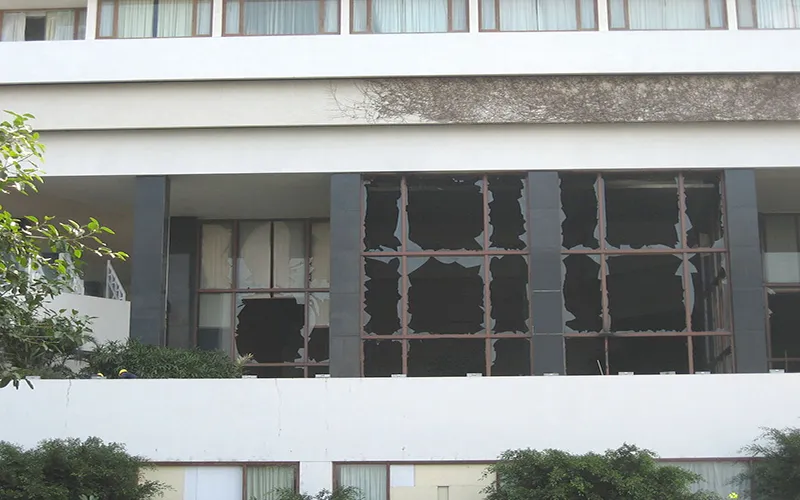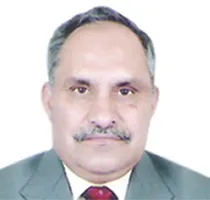-
CENTRES
Progammes & Centres
Location
Certainly, the Government of India should vehemently object to Lakhvi's release, as it has rightly done. But to expect that such objections will have any substantive impact on Pakistan, is silly. India must keep its guard up.

If one were to pay attention to the heated debates on television, following the release of 26/11 mastermind Zaki-ur-Rehman Lakhvi from a Pakistani prison, one can be forgiven for believing that he or she is dealing with a cross between a master strategist like Sun Tzu and a General like Alexander, the Great. Some opined that Lakhvi had been released by Pakistan for the express purpose of launching another terror attack. That such 'adulation', for want of a better word, verges on the ridiculous, is an understatement. But this is something the media is wont to do.
Remember, the publicity that Mast Gul garnered after the 1995 Charar-e-Sharif siege in Kashmir or think of the hype that has been generated by the shenanigans of Masarat Alam in Srinagar. For some reason, media editors don't understand that excessive publicity only benefits the terrorists and adds to their mystique.
Mast Gul, once the poster-boy for azaadi in Kashmir, ended up as the Tehreek-e-Taliban Pakistan 'commander' for Peshawar and has been responsible for a spate of attacks in that region, including an attack on Shias in 2013. Some believe that he was also involved in the December 2014 attack on the Army school in Peshawar.
The truth is that getting 10 men to do the type of damage they did in Mumbai requires neither extensive training nor much professional acumen nor nor great intelligence and not even excessive courage. All you need is a few criminals, who have no future prospects, but a penchant for sadism and savagery, as well as blind faith in their leaders. Give these men automatic weapons with sufficient ammunition and they will cause ample damage.
Certainly, the Government of India should vehemently object to Lakhvi's release, as it has rightly done. But to expect that such objections will have any substantive impact on Pakistan, is silly. In any case, as some analysts have suggested, Prime Minister Narendra Modi's policy of treating Pakistan as a redundant element in India's scheme of things, appears to be working well. But this country must keep its guard up.
While Pakistani establishment may want India and the world to believe that the Mumbai attack was planned and executed by non-state actors located within its country, the involvement of the Inter-Services Intelligence has been proven beyond doubt. Pakistan cannot be allowed to get away with another such attack. However, that is not dependent on how Pakistan acts, but on the actions that India initiates.
The responsibility for preventing terror attacks in India rests not just with our politicians and the bureaucracy, but also with each of us. We must compel our leaders to put in place the comprehensive security measures. We must also accept that, regardless of whatever system we put in place, terrorists will occasionally succeed because of either a lapse on our part or due to luck.
However, a professional security establishment with effective intelligence and the ability to respond swiftly to emanating threats will ensure deterrence and minimise damage in the case of a terror attack. Unfortunately, political expediency and opportunism, coupled with a lack of expertise, continue to leave us vulnerable to future attacks. For one, we have failed to understand that terror attacks are no longer about prolonged drama — taking hostages and extended negotiations — but about maximum damage to life and property, like the school attack in Peshawar or the recent attack in Kenya.
Therefore, having specialised intervention capability, such as the National Security Guard, which is spread out across the country, does not meet our requirements. To effectively respond to future terror attacks, every town and city must have an inherent capability to neutralise terrorists at short notice. Whether we utilise elements from the local police or otherwise, is immaterial. A suitably trained and equipped force, capable of reacting within minutes, is needed.
Our police forces are incapable of providing such a service because of their lack of professionalism (due to political interference and widespread corruption within the forces), poor quality manpower, inadequate training and lack of modern equipment.
Our inability to set up a National Counter Terrorism Centre, mainly due to political differences between the States and the Centre, has also added to our vulnerabilities. Coordination between security agencies is still poor, we lack lack strategic communication systems and our surveillance capabilities are still inadequate — these are all failings that were highlighted during 26/11. Any serious study of our security architecture will show that those inadequacies are still to be plugged. It is time that those entrusted with this responsibility, act, before it is, again, too late.
(The writer, a military veteran, is a consultant with Observer Research Foundation)
Courtesy: The Pioneer, April 22, 2015
The views expressed above belong to the author(s). ORF research and analyses now available on Telegram! Click here to access our curated content — blogs, longforms and interviews.

Brig. Deepak Sinha (Retd.) was Visiting Fellow at ORF. Brig. Sinha is a second-generation paratrooper. During his service, he held varied command, staff and instructional appointments, ...
Read More +